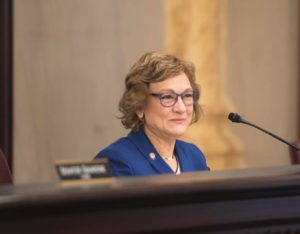Homeschool nonprofit celebrates Ohio’s new law eliminating ‘common conflicts between parents, schools’
Ohio has become the latest state to ease homeschooling requirements after the governor signed a new law July 4.
“By simplifying the law, the sources of many common conflicts between parents and…

Ohio has become the latest state to ease homeschooling requirements after the governor signed a new law July 4.
“By simplifying the law, the sources of many common conflicts between parents and schools have been eliminated,” wrote Amy Buchmeyer, attorney at the Home School Legal Defense Association (HSLDA).
Until the new provisions go into effect in October, homeschool parents should continue to comply with previous requirements, including filing a notice of intent (NOI) at the beginning of the 2023-2024 school year.
“Families should include in their NOI packet a notice of intent for an exemption from compulsory school attendance under the new homeschool law,” Buchmeyer wrote. “That way, when the original homeschool regulations are invalidated in October, families will have the appropriate paperwork on file with their local school district that will put them in compliance with the new homeschool regulations.”
Buchmeyer outlined a list of benefits from H.B. 33, contrasting it with Ohio’s former stance on homeschooling.
Before the new law, homeschooling was considered an “excuse” from public school attendance, which could only come from the family’s school superintendent after parents submitted the NOI.
However, parents can exempt their own child from compulsory school attendance under the new law with a much shorter notice.
While the superintendent will be required to acknowledge receipt of the NOI, it will be considered a receipt only and not an official “excuse letter.”
Paperwork deadlines have also been streamlined to either Aug. 30 in all school districts, or within 5 days of starting a child’s homeschool program.
Before this, parents had three possible deadlines to file a notice based on the public school’s starting date, the date of the child’s residence in the district, or the date of a child’s withdrawal from school.
The new law also makes the notice of intent much shorter. No longer will parents need to include information about the child, curriculum outlines, lists of teaching materials, and assessment information.
“Under the new law, parents must transmit a notice of intent listing (1) the parent’s name and address, (2) the child’s name, and (3) an assurance that the child will receive education in the required subject areas,” Buchmeyer wrote. “That is it. No other information is required to exempt your child from compulsory school attendance.”
The new law also eliminates the former requirement for parents to assess their child using a portfolio review, standardized achievement test, or other option approved by the superintendent.
Required subjects have decreased under the new law to six – language arts, math, history, science, social studies, and government. Formerly required subjects such as health, physical education, fine arts, first aid, and fire prevention have dropped from the list.
Finally, parents no longer need to meet specific teacher qualifications or provide instruction for a required number of hours.
The new law follows a wave of homeschool-friendly legislation passed in other states such as Texas and Vermont.
The Texas Home School Coalition had lobbied for many of the laws, which increase access to extracurricular activities and higher education.
Other bills signed by Texas Gov. Greg Abbott protect parents involved in CPS investigations and remove juvenile curfews, which disproportionately affected homeschool students.
Meanwhile, Vermont has eliminated requirements to submit homeschool end-of-year assessments and a minimum course of study to the state, reducing paperwork and expanding options for families.
“That’s going to open up the freedom of the parent to really think outside the box,” said Retta Dunlap, a homeschool mom who had been advocating for the Vermont law for over three decades. “The creative nature of homeschooling children will be opened up by this.”



